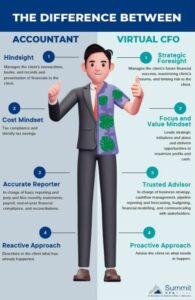Why Key Performance Indicators Matter
By Dan Rutherford, Virtual CFO and Transportation + Logistics Industry Expert for Summit Virtual CFO by Anders
Key performance indicators (KPIs) are vital for transportation & logistics companies.
KPIs such as revenue per truck, utilization, and revenue per mile provide valuable insights into the company’s performance. Accurate accounting is essential to ensure the reliability of these KPIs, which are critical when creating a financial forecast.
Make sure any CFO you’re working with has the necessary tools and expertise for accurate forecasting. Effective forecasting involves considering not just revenue but also cash flow and making informed decisions about equipment purchases, employment, and other factors that can impact your company’s financial position.
In addition to financial metrics, non-financial metrics play a significant role in assessing performance. Capacity planning, in particular, is critical for aligning a company’s goals with its operational capabilities. By focusing on improving culture, people, technology, and processes, companies can enhance utilization and effectiveness.
Measuring productivity and activity is equally important. 
I believe that productivity and activity go hand in hand, and, by increasing activity levels, productivity naturally improves. Metrics like gross profit per person are widely used on the logistics side of the industry to gauge productivity.
Make sure that you’re meeting regularly with your CFO. You should have an established cadence–meeting weekly to review cash flow. These proactive meetings not only address the current state of your cash flow but also anticipate any potential issues that may arise in the next 12 weeks. This approach ensures that your company is prepared for any challenges and can have peace of mind. If your CFO is reactive (reacting to a situation after it’s happened) rather than proactive (planning for a situation before it happens), you might want to consider a CFO with a more advisory approach.
Having someone on your team that understands the importance of having cash and tax reserves to prepare for unexpected events, such as economic changes or a pandemic, can be the difference in your business thriving or tanking. By discussing these scenarios ahead of time, you can create a plan and feel more secure about your financial future.
Once you understand the importance of forecasting, know your KPIs and non-financial metrics, you can leverage these factors to take your transportation and logistics company to the next level and unlock its full potential. The key to this, however, is having a CFO who understands the industry.


